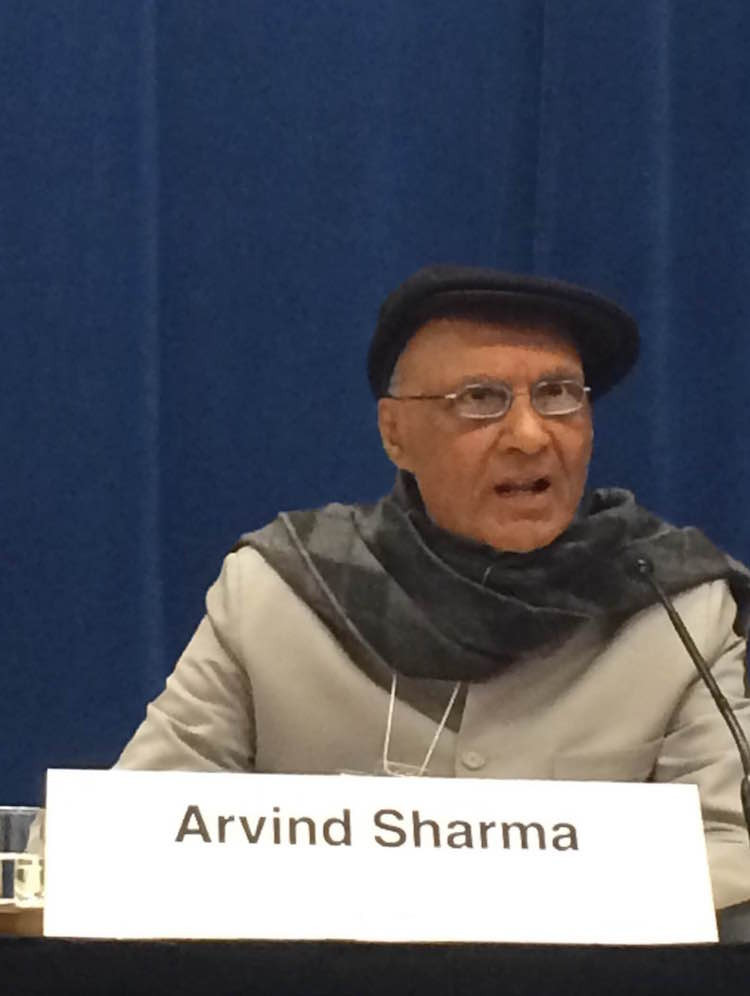Montreal Hosts Third Global Conference on World’s Religions
Speakers Address Concerns of Both Religious and Nationalist Terrorism
Religious extremism and Donald Trump were hot topics for Karen Armstrong at the third Global Conference on World’s Religions since 9/11.
“Donald Trump’s presidential win would be a gift to religious extremists like [the Islamic State],” said Armstrong, a religious historian from Britain.
She was among several experts who spoke last Thursday at Palais des Congrès about politics and its connection with the rise of religious fanaticism.
“There is no quick cure for radicalization, the problems are deep and becoming endemic,” said Armstrong. “We have learned what’s not good are any more of these quick fix military interventions, which have simply exacerbated the whole problem.”
Armstrong was awarded the Order of the British Empire and is part of the Royal Society of Literature. As a historian, she is well versed in crimes against Humanity. She explained nationalism historically has been more dangerous than religion.
“The West is retreating backwards and nationalism is dangerous for those who don’t fit the national profile,” said Armstrong.
She pointed out that nationalism has caused many atrocities throughout history, referring to the Armenian genocide and the Nazi Holocaust.
“And now you have this with Donald Trump: America First,” she said. “They’ll have to take down the Statue of Liberty.”
The fear is mounting as the American election looms closer. A Gallup poll conducted in early March, 2016, recorded that 48 per cent of respondents personally worry about the possibility of future terrorist attacks in the U.S. The same poll found that 23 per cent worry a fair amount, and ten per cent do not worry at all.
Another July 2016 poll, titled Gen Forward, conducted by the Black Youth Project in association with the Associated Press-NORC Centre For Public Affairs Research, found that 62 per cent of African-Americans and 55 per cent of Latino-Americans are concerned about white extremism. 33 per cent of white and Asian-Americans shared the concern.
The Gen Forward survey also found that at least half of people across all groups fear violence committed by foreign extremists.
“Trump started off as a kind of joke, just as Hitler started off as a kind of joke. But he was elected in a democratic vote with hideous results,” Armstrong said. “Information is important but people don’t want to know.”
The conference opened up the floor for discussion around issues still plaguing the world’s religions. Several speakers including Armstrong, Deepak Chopra and Arvind Sharma provided their insight on the conflicts in the Middle East and how to prevent the rise fanatical religious groups.
Also unveiled at the conference was the Universal Declaration of Human Rights by the World’s Religions.
The document is the result of an 18-year project under the leadership of Arvind Sharma. It began in 1998 as a commemoration of the 50th anniversary of the United Nations Universal Declaration of Human Rights.
However, the original Declaration of Human Rights created in 1948 has been critiqued for failing to include the religious or spiritual basis of human rights.
The Universal Declaration of Human Rights by the World’s Religions was created to include groups previously left out.
“It represents a collective vision of human rights from the religious communities of the world,” said Brian Lepard, a member of the Declaration’s drafting committee.
“The Universal Declaration was adopted before we began to recognize that there are many groups that have been the subject of very blatant discrimination,” explained Lepard. “Including women, minorities, racial groups, disabled, indigenous population, and so it could not address itself exclusively to discrimination against these groups.”
These marginalized groups were the motives behind creating the new Universal Declaration of Human Rights.
“It is important to acknowledge the role that religion plays in billions of peoples live,” said Lepard.





_600_375_90_s_c1.jpg)
_600_375_90_s_c1.jpg)
